Search Results
Showing results 1 to 16 of 16

Mystery Boxes for Grades 3-5
Source Institutions
Learners manipulate opaque, sealed boxes and attempt to determine their interior structures. Each box contains a moving ball and one or more fixed barriers.
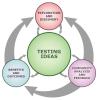
Heating and Cooling of the Earth's Surface
Source Institutions
Learners conduct an experiment to determine the rate at which two materials, sand and water, heat up and cool down.
What's So Special about Water: Absorption
Source Institutions
In this activity about water's cohesive and adhesive properties and why water molecules are attracted to each other, learners test if objects repel or absorb water.

Dogs and Turnips
Source Institutions
Learners turn over a random selection of cards from a larger set. From the words revealed, they try to determine the sentence represented on the larger set of cards.
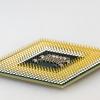
Crime Scene: The Case of the Missing Computer Chip
Source Institutions
Learners use scientific processes to solve a crime. As they get clues, learners must create a hypothesis then adjust that hypothesis as more information is revealed.
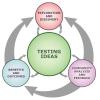
Number Patterns
Source Institutions
In this lesson, learners are challenged to discover the relationship among six numbers.
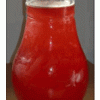
What's So Special about Water: Solubility and Density
Source Institutions
In this activity about water solubility and density, learners use critical thinking skills to determine why water can dissolve some things and not others.
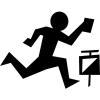
The Checks Lab
Source Institutions
A group of learners has an envelope containing a series of bank checks. A few checks are removed at a time, and the team attempts to construct a plausible scenario which involves those checks.
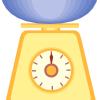
Heavy or Light
Source Institutions
In this activity, learners explore a scale by comparing objects, which look similar but have different weights. Learners predict and then measure the weights of various objects using a scale.
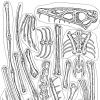
The Great Fossil Find
Source Institutions
On an imaginary fossil hunt, learners "find" (remove from envelope) paper "fossils" of some unknown creature, only a few at a time.

Exploring Bouncing Balls
Source Institutions
Learners explore the physical properties of a variety of balls and how they bounce.
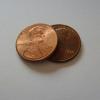
Wet Pennies
Source Institutions
Learners initially test to see how many drops of liquid (water, rubbing alcohol, and vegetable oil) can fit on a penny.

Introduction to the Scientific Method
Source Institutions
In this activity (page 26 of the PDF), learners make observations, formulate hypotheses and design a controlled experiment, based on the reaction of carbon dioxide with calcium hydroxide.

Invent on the Spot
Source Institutions
In this activity, learners design a device to solve a problem: how to get a ball out of a drain pipe.
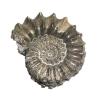
Xenosmilus
Source Institutions
Learners imagine they are paleontologists in Florida, where they find (remove from envelope) paper "fossils" of some unknown creature, only a few at a time.
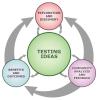
Weathering and Erosion
Source Institutions
In this multi-station lab, learners conduct a series of experiments to explore the processes and effects of weathering and erosion.
